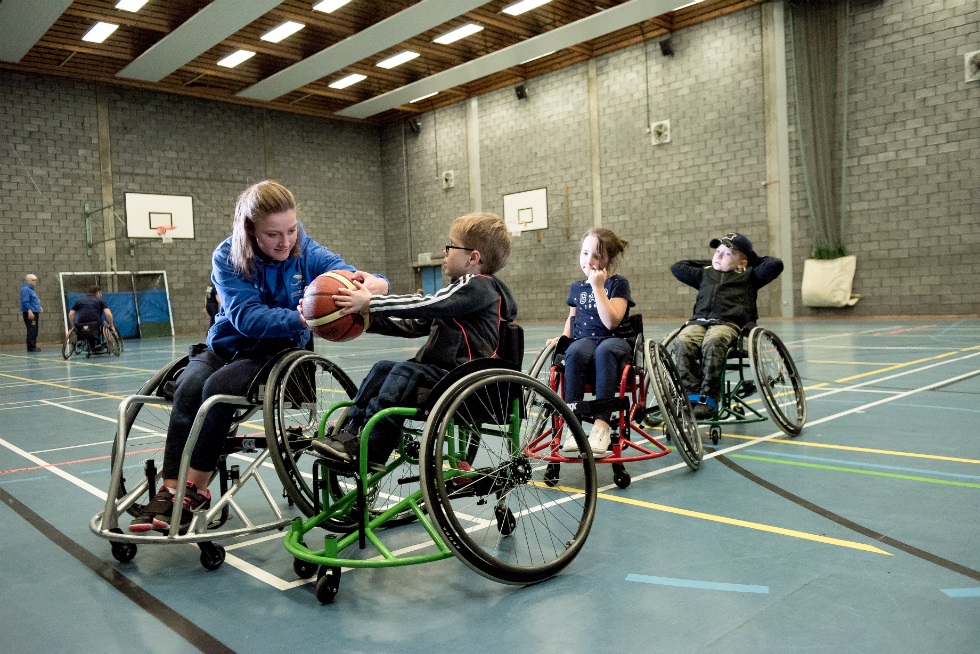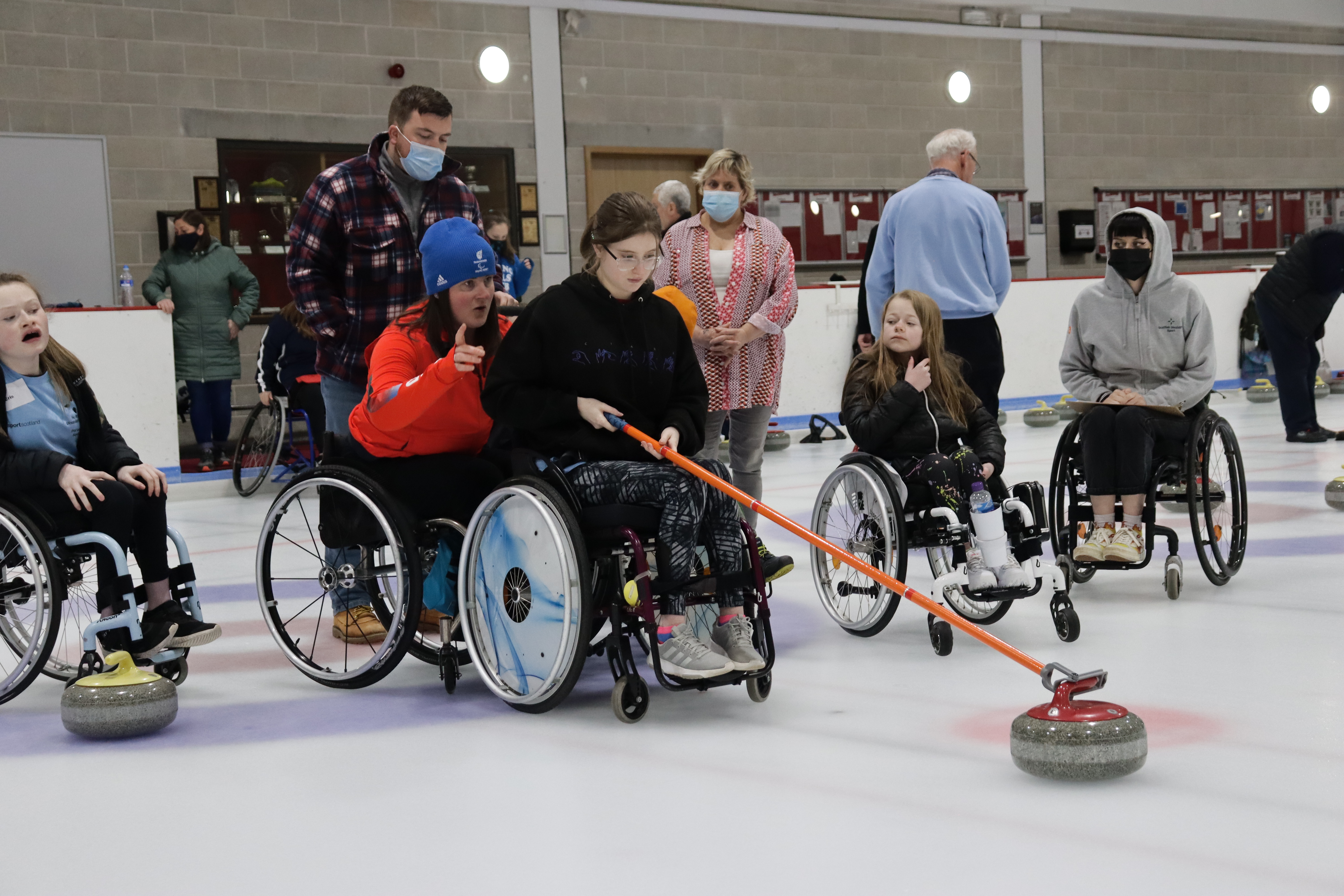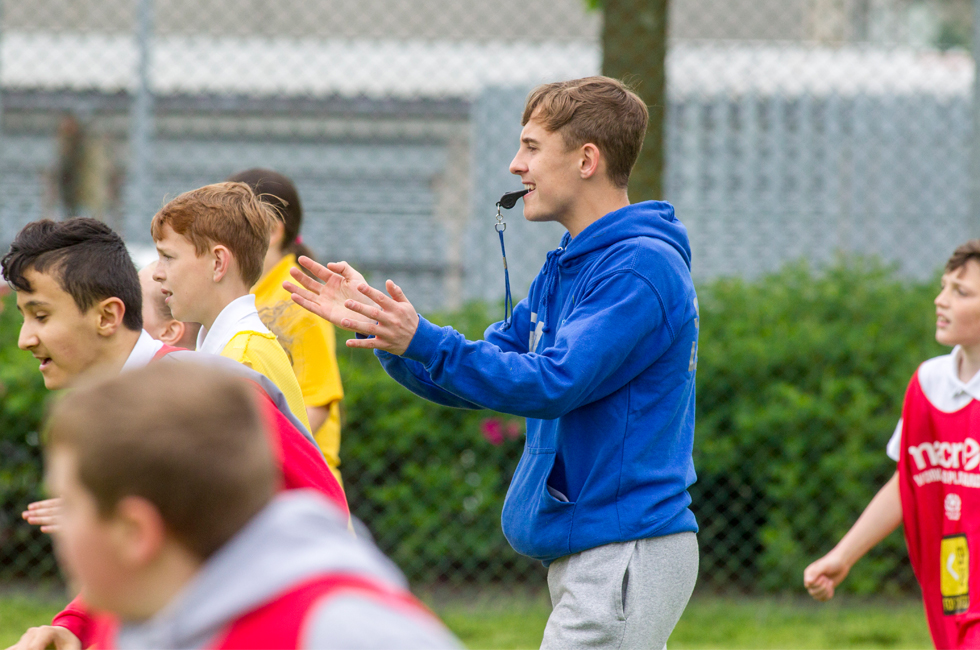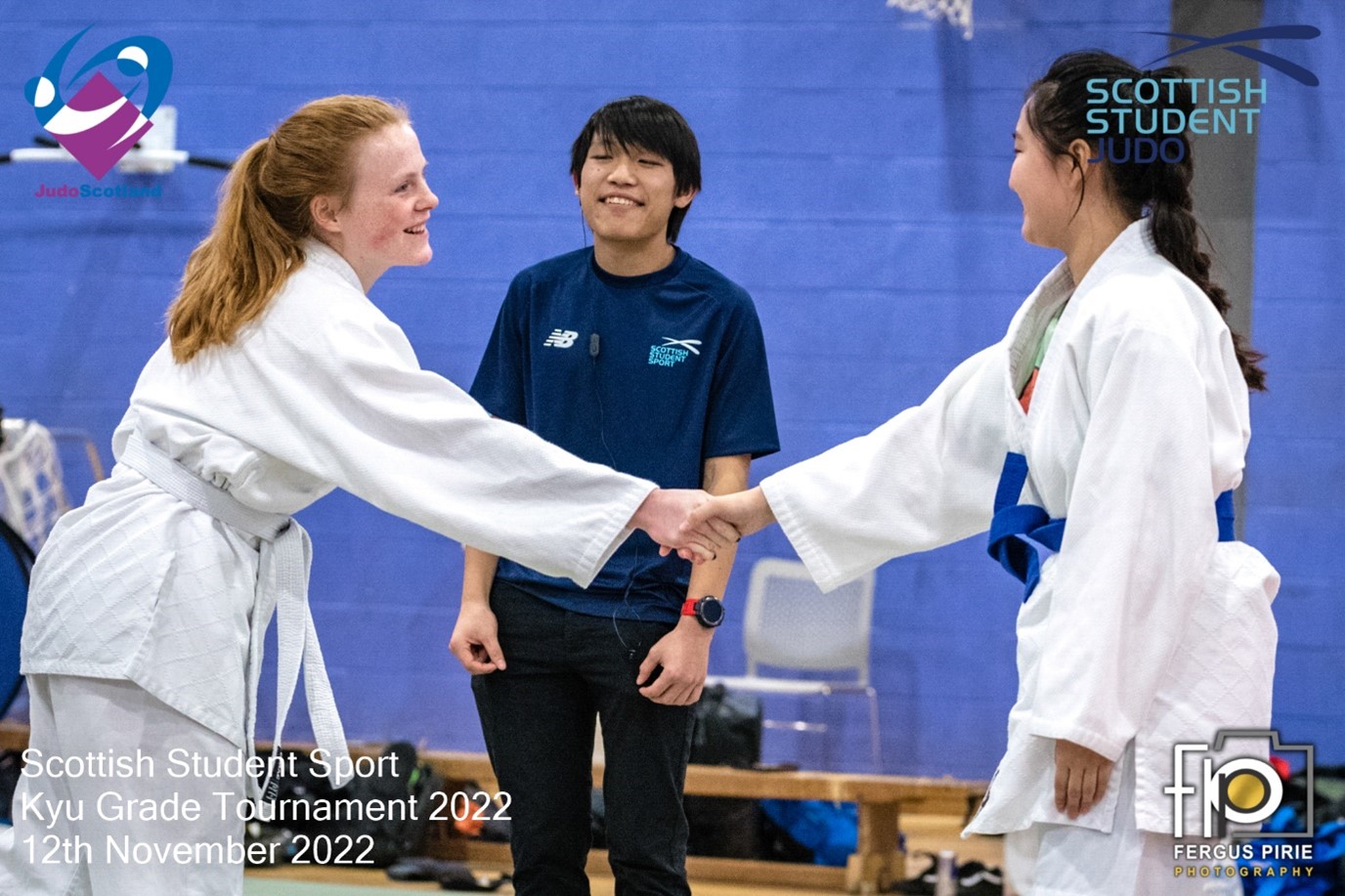Everyone should have the opportunity to get involved in sport and physical activity, and this is one of the principles that underpins the approach taken by sportscotland and its partners.
Collaboration is another essential principle, and the sporting connection established between the bodies responsible for student sport and disability sport in Scotland crystallises the impact that can be achieved by working together.
A cornerstone of the vibrant partnership between Scottish Student Sport (SSS) and Scottish Disability Sport (SDS) has been the roll-out of the UK-wide Disability Inclusion Training (DIT) programme across the university and college landscape.
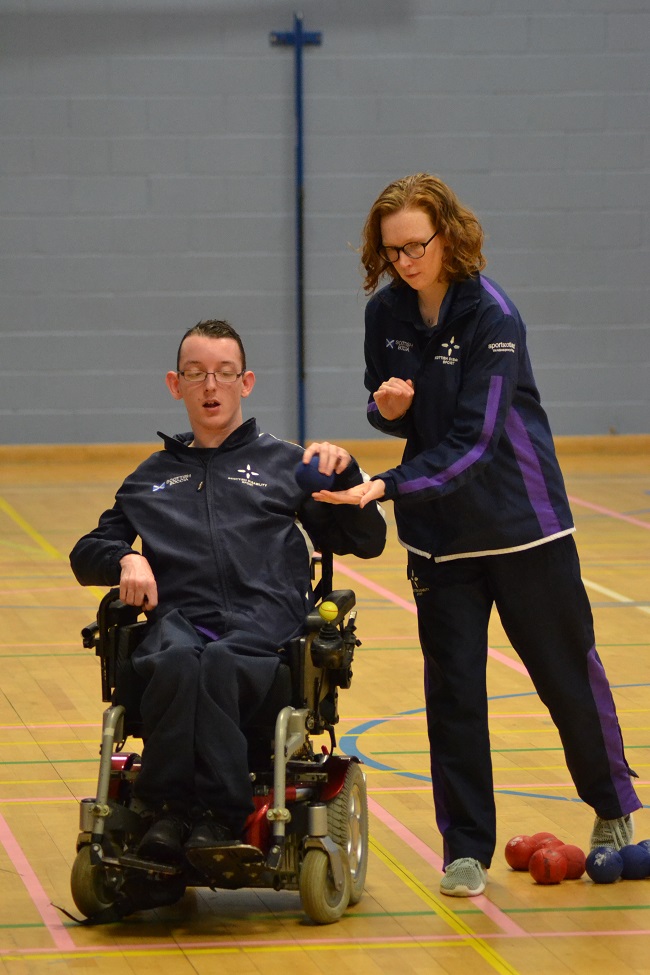 In the past two years, DIT has been embedded in all PE courses in Scotland, introduced to universities to enhance the trainee primary teaching curriculum and delivered to coaches in training across colleges and universities.
In the past two years, DIT has been embedded in all PE courses in Scotland, introduced to universities to enhance the trainee primary teaching curriculum and delivered to coaches in training across colleges and universities.
A more inclusive culture
Gavin Macleod, SDS chief executive, said: “We recognised that to make physical activity and sport more inclusive, the next generation of teachers and coaches would be the best positioned to support a more inclusive PEPAS [Physical Education, Physical Activity and Sport] culture for successive generations.
“SSS and SDS aim to use DIT to make students feel more confident and competent in working with young people with a disability. The training is delivered to all PE and primary teaching students attending initial teacher training and students attending further and higher-education initial coaching courses.”
The training has made a positive impact in 13 universities and colleges, an increase of five in the two-year period.
Aims of the game
So what’s involved in the training provided to students through this partnership?
The aims include:
- to improve the quality of PE provision and coaching for disabled children and their non-disabled peers
- to upskill trainee early years practitioners, trainee primary teachers, trainee specialist PE teachers and trainee coaches throughout Scotland with knowledge, skills and experience to fully include disabled young people in quality PE and sports provision
- to give more disabled children a positive and inclusive experience of PE and sport, inspiring and encouraging the next generation of young disabled people to lead full and active lifestyles
- to engage with trainee teachers and coaches and make them feel more confident and competent working with the disabled people they will inspire and encourage to be more active.
The teachers and coaches need to feel empowered to make the PEPAS agenda fully inclusive through bringing to life the Activity Inclusion Model (AIM), as shown.
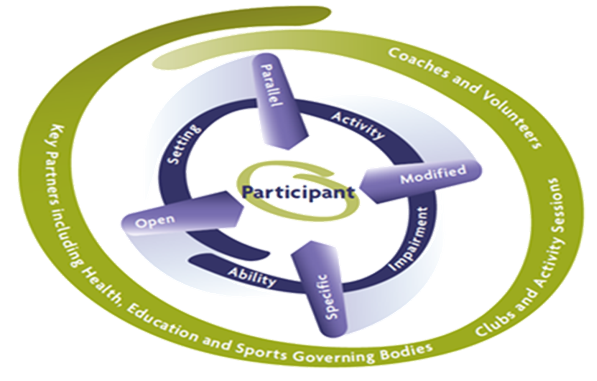
Positive feedback
An external evaluation to measure the progress and success of the training was overwhelmingly positive.
One trainee said: “The course was a ‘lightbulb’ moment. Inclusion adds value and inspires all.”
Other responses to the evaluation reflected:
- the effectiveness of the training
- a new confidence and competence in delivering opportunities
- a strong application of the elements of the training courses
- the impact on their teaching
- an enthusiasm for sharing learning
- the quality of courses.
One undergraduate fourth-year PE student from the University of Edinburgh said: “The workshops were very good and the knowledge I have gained, I will be able to take this with me and apply it to situations in school.”
Another said: “I thought this was a brilliant course from SDS to develop my understandings on disability and inclusive PE.”
Mark Breslin, University of Glasgow lecturer in physical education, health and well-being and programme leader for MEduc Years 1 & 2, said: “I would like to express how pleased I am with the SDS training that has been provided in recent years within the School of Education at the University of Glasgow.
“Inclusive education is a Government priority and students have lectures and assignments on inclusive education and I know that many students have used the SDS training as a focus of these assignments.
“I can only hope that the SDS training can be part of the Masters in Education and PGDE programmes for future years.”
Deep connections
Stew Fowlie, SSS chief operating officer, explained more about the sporting connections established between SSS and SDS and how this enables more people to experience the benefits of sport (see more in the film below).
Stew said: “The student population represents a large, diverse and significant group of people who are at a key stage of life and are beginning to form habits for the remainder of their lives. A significant proportion of Scotland’s 450,000 students identify as having a disability and the environment of tertiary education can provide a unique opportunity within which to switch them on to sport.
“The curricular programmes around primary teaching, physical education and other sport and physical activity disciplines provide an invaluable opportunity to embed principles of inclusive practice into the mind of tomorrow’s coaches, leaders and educators.
“In terms of value and culture, the tertiary education sector is very much switched on to the message of inclusion, but may historically have lacked the connections, expertise and confidence to optimise delivery. This is where the involvement of SDS is invaluable.
“New relationships have been created and fostered, both internally – for example between sports structures and disability services on campus – and in terms of the colleges and universities linking in to the disability sport structures in communities and branches across Scotland.”
Future development
So what does the future of the partnership hold, and what do the two organisations hope to achieve in the coming years?
- Closer working relationships across the sporting system
- Improved connections between sport and disability services
- A clearer understanding of the student population and its varying needs
- Development of the SSS competitions programme
- Enhanced performance sport opportunities for student athletes with a disability
- Continued advancement of inclusion principles within the curriculum and in coaching and leadership practice
- Creation of resources and communications material to promote the opportunities and benefits to students
- Promotion of inclusive volunteering and leadership opportunities across networks.
Find out more
- Visit the SDS website
- Visit SSS online
- Discover sportscotland’s Sport For Life strategy

